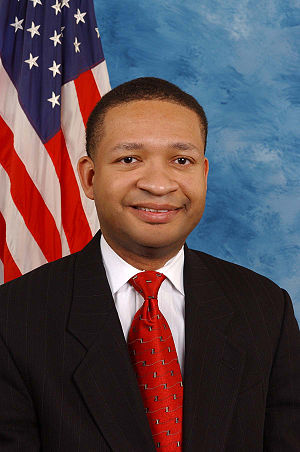So the left would have you believe that the voter fraud debate is really about racist Republicans trying to prevent African-Americans and other minorities from voting. The New York Times ran this argument earlier this month, conveniently ignoring that the right-wing bastion Rhode Island passed a voter ID sponsored by leading African-Americans and Latinos, all Democrats.
Well, today we are greeted by an op-ed by former Congressman Artur Davis, who was one of the shining lights of African-American Southern Democrats. Davis says that he made a mistake in opposing voter ID and that the real thing that needs immediate action is “manufactured” ballots in Alabama’s Black Belt, which refers to the color of the dirt.
Let’s check out Davis’s own words, which are pretty striking:
I’ve changed my mind on voter ID laws — I think Alabama did the right thing in passing one — and I wish I had gotten it right when I was in political office.
When I was a congressman, I took the path of least resistance on this subject for an African American politician. Without any evidence to back it up, I lapsed into the rhetoric of various partisans and activists who contend that requiring photo identification to vote is a suppression tactic aimed at thwarting black voter participation.
The truth is that the most aggressive contemporary voter suppression in the African American community, at least in Alabama, is the wholesale manufacture of ballots, at the polls and absentee, in parts of the Black Belt.
Now, it is worth pointing out the record that we are talking about here. He is addressing a real problem. After all, Alabama has an extraordinary record of convictions for election fraud. Let’s give some examples:
- Heritage noted in 2008 a long record of the NAACP and the Southern Christian Leadership Conference working hard to stop investigations of election fraud that resulted in the convictions of 11 people involved in long-term vote “manufacturing.”
- In 2010, a Pike County Commissioner plead guilty to absentee voter fraud. She knowingly submitted improperly witnessed and/or fabricated ballots in an election she won by 6 votes. The election was eventually overturned by a judge.
- In 2009, two women plead guilty to absentee ballot fraud. In grand jury testimony related to an event in 2004, they testified that they witnessed a bunch of absentee ballots in room, misspelling the names of the people that they were voting for.
- In 2010, the former Hale County Court Clerk plead guilty to a number of charges relating to the 2004 and 2005 elections. The indictment found that she was committing fraud for a number of candidates including her brother and her husband.
- In 2008, even NPR had a report about the problems in Alabama.
